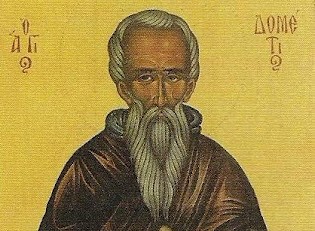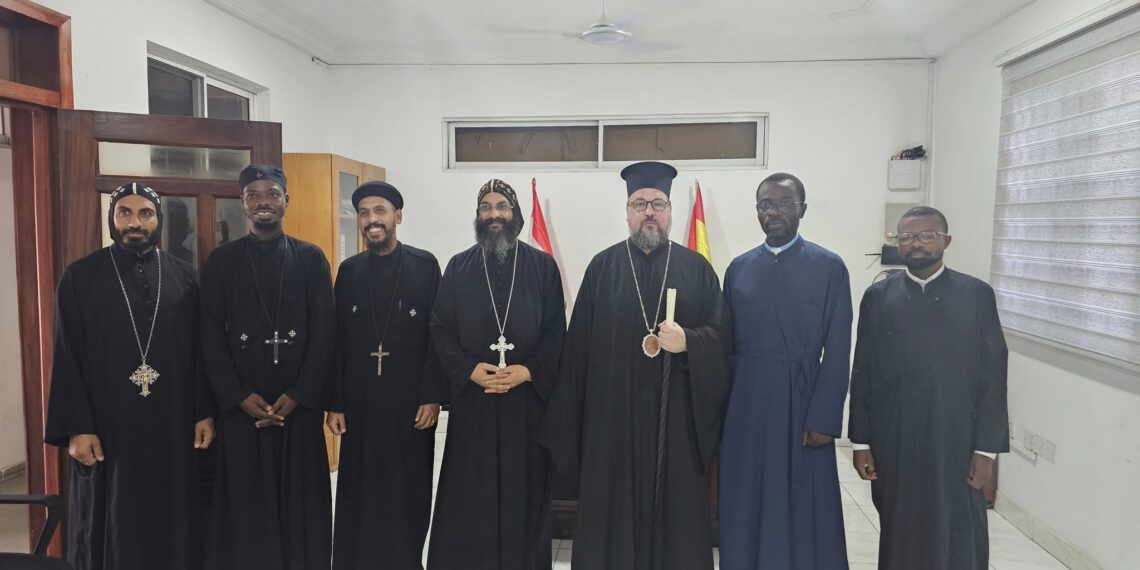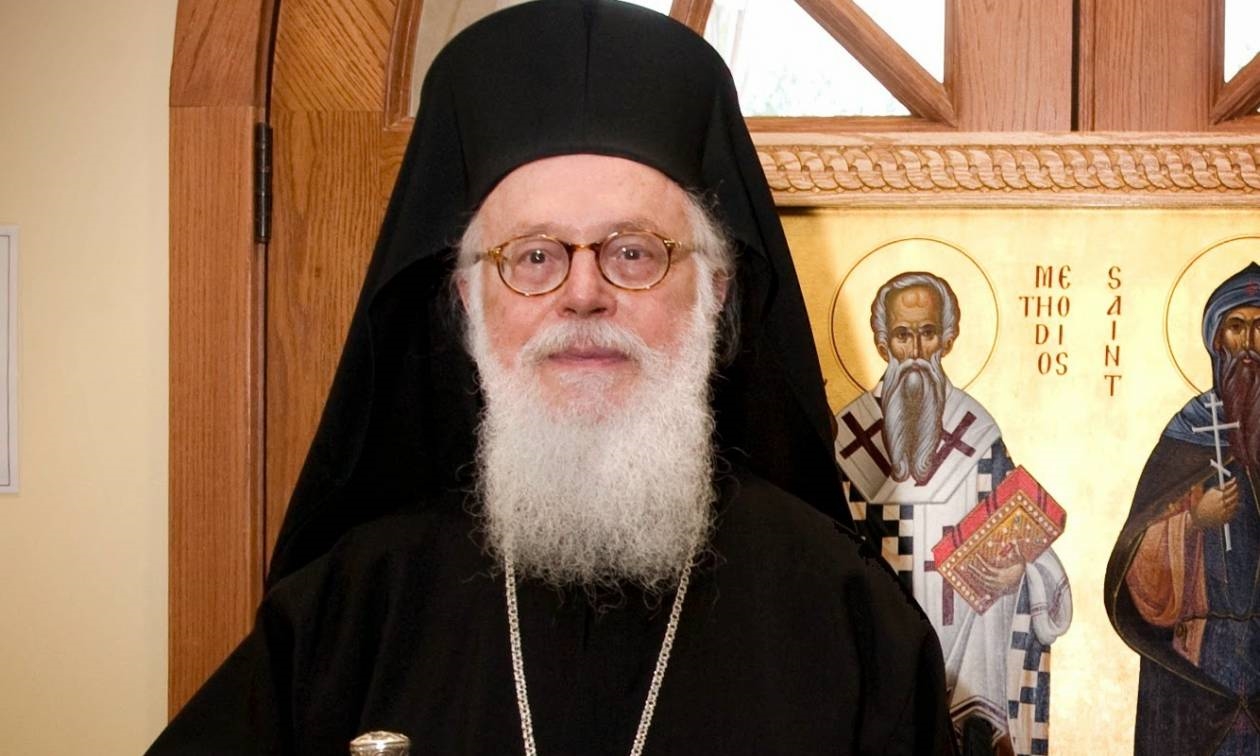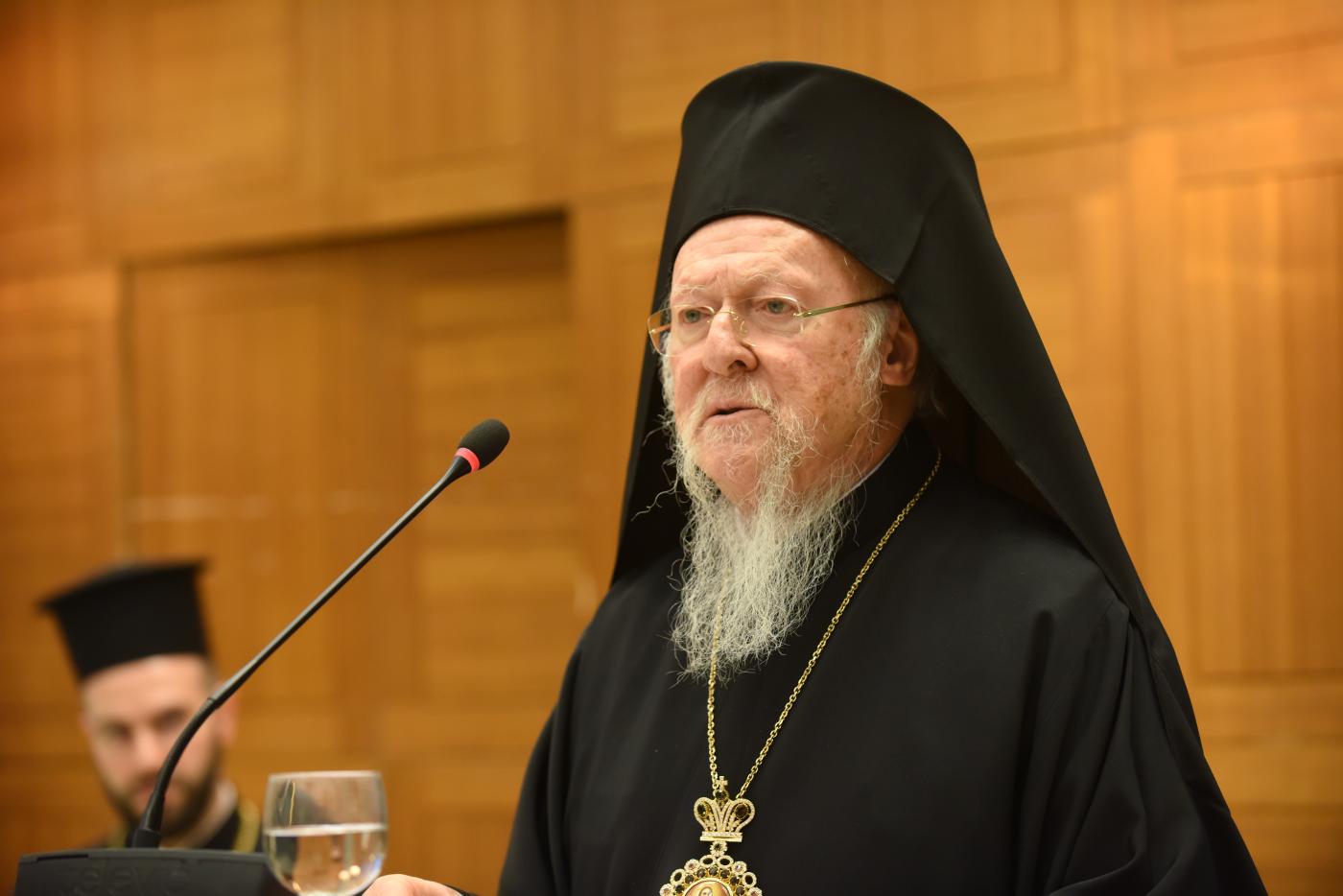Martyr Dometius of Persia and his two disciples (7 August)


Saint Dometius lived in Persia during the fourth century. In his youth he was converted to the Faith by a Christian named Uaros. Forsaking Persia, he withdrew to the frontier city of Nisibis (in Mesopotamia), where he was baptized in one of the monasteries, and also received the monastic tonsure.
Fleeing the ill-will of some of the monks, Saint Dometius moved to the monastery of Saints Sergius and Bacchus in the city of Theodosiopolis. The monastery was under the guidance of an archimandrite named Urbelos, a strict ascetic, of whom it was said that for sixty years he did not taste cooked food, nor did he lay down for sleep, but rather took his rest standing up, supporting himself upon his staff.
In this monastery Saint Dometius was ordained a deacon, but when the archimandrite decided to have him made a presbyter, the saint, considering himself unworthy, hid himself on a desolate mountain in Syria, in the region of Cyrrhus.
Stories about him constantly spread among the local inhabitants. They began to come to him for healing and for help. Many pagans were brought to faith in Christ by Dometius. And one time, in the locality where Saint Dometius struggled with his disciples, the emperor Julian the Apostate (361-363) arrived, traveling on his campaign against the Persians. By order of the emperor, soldiers found Saint Dometius praying with his disciples in a cave, and walled them up alive inside.


This Martyr, who lived during the reign of Saint Constantine the Great, was a Persian by race and an idolater by religion. He was catechized by a certain Christian named Abarus. He went to Nisibis, a city of Mesopotamia, where he was baptized and donned the monastic habit in a certain monastery. He afterwards ascended a mountain and there endured in extreme ascetical struggles, working miracles for those that came to him, and converting many unbelievers. Julian the Apostate learned of these things as he was marching against the Persians in 363, and at his command the Saint and his two disciples were stoned to death, as they were chanting the Sixth Hour.
Dometius was born in Persia as a pagan during the reign of Emperor Constantine. He became acquainted with the Christian Faith as a young man, abandoned paganism, and was baptized. So much did Dometius love the True Faith that he left every worldly thing and was tonsured a monk in a monastery near the town of Nisibis. He lived for some time among the brethren, and then withdrew to a life of silence with the elder, Archmandrite Urbel (who is said to have not eaten only cooked food for sixty years). Elder Urbel ordained Dometius a deacon, and when he wanted to compel him to receive the rank of a priest, Dometius withdrew to an isolated mountain and settled in a cave. He attained such a high degree of perfection through fasting, prayer, all night vigils and godly-thoughts that he miraculously cured the sick. When Julian the Apostate came to those regions, he heard of Dometius and sent men to seal him up alive in a cave, with two of his disciples. Thus, this saint of God died and took up his habitation in the Kingdom of God in the year 363 A.D.
Apolytikion of Martyr Dometius
Fourth Tone
Thy Martyr, O Lord, in his courageous contest for Thee received as the prize the crowns of incorruption and life from Thee, our immortal God. For since he possessed Thy strength, he cast down the tyrants and wholly destroyed the demons’ strengthless presumption. O Christ God, by his prayers, save our souls, since Thou art merciful.
Verses
You swiftly trained your initiates Father,
In all things your fellow contestants by stones.
On the seventh your two initiates were covered Dometios.
Saint Dometios was born during the reign of Constantine the Great in the year 318. He was from Persia. Having been catechized by a Christian named Abar and taught the faith of Christ, he abandoned his ancestral impiety and every other attachment to his relatives. Therefore he went to the city called Nisibis, which is found at the border between the land of the Romans and the land of the Persians. There the Saint entered a monastery, was baptized, was dressed in the monastic schema, and took on every struggle and asceticism.
However, due to the cooperation between the monks there with a wicked demon, he was slandered and therefore withdrew from there and went to the Monastery of the Holy Martyrs Sergius and Bacchus in the city of Theodosiopolis, and he followed the virtuous conduct of the Abbot and Archimandrite Urbil, of whom it is said that for sixty years he did not eat any cooked food, nor did he lie down on a bed, nor did he sit. By him he was elected to be ordained a Deacon. Because the Abbot considered elevating him to the office of Presbyter, when Saint Dometios understood this, he withdrew from there, and he went up a mountain, where the renowned one endured the heat of the summer and the cold of the winter, and the other miseries that come with the changes of the seasons.
Later he entered a man-made cave. Having remained there for a sufficient time, those who came to him he benefacted with miracles and healings, which he did in the name of the Lord. The unbelieving Greek pagans he turned from the error of the idols to the faith of Christ. When Julian the Apostate (361-363) learned of this when he went to Persia, he ordered for the Saint to be stoned to death. When those who went to stone him arrived, they found him chanting the Third Hour with his disciples. Thus with the density of the stones the defiled ones buried the athlete of Christ, together with his disciples, and in this way the three received the crown of the contest. Their Synaxis and Feast is celebrated in their Temple which is found beyond in Justiniana.
Apolytikion in the Fourth Tone
After disciplining thyself with prayer and fasting on the mountain, thou didst destroy the hosts of spiritual enemies with the weapon of the Cross. Thou didst bravely arm thyself again for martyrdom, and wast crowned both for thy life and for thy death, O blessed Hieromartyr Dometios.
Kontakion in Plagal of the Second Tone
Thou didst rise above earthly things which drag down the mind, thou wast a great guide of monks, O Dometios. Thou didst not fear the furious emperor, who would not honour God. Therefore O Hieromartyr, thou didst die chanting the hymn: God is with me and no one is against me.
Source: oca.org / goarch.org / westserbdio.org / John Sanidopoulos







